Just because you are a bee-ginner, it does not mean you need to bee making bee-ginners mistakes. I live by the mantra: a fool learns from his own mistakes; a wise man learns from the mistakes of others.
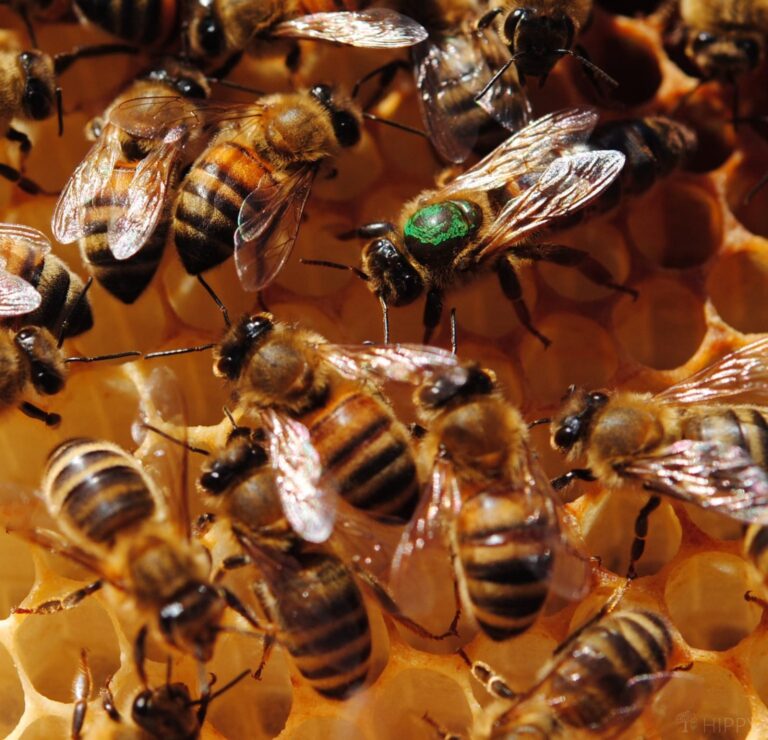
Keeping a couple of hives has incredible benefits for your health as well as for the environment. Honey has such great benefits, it:
- ☑ Promotes burn and wound healing
- ☑ Contains antioxidants
- ☑ Lowers blood pressure
- ☑ Contains nutrients
- ☑ Lowers cholesterol
- ☑ Lowers Triglycerides
- ☑ Helps for dry, scratchy throats and itchy coughs
Beekeepers make so many mistakes that could cost them time, money, and production. But the more beekeepers you talk to, the more you will hear issues that come up over and over again.
If you are a new beekeeper or you are wanting to get going, take the plunge – do it! But let’s learn from other’s mistakes and get it done right from the start.
I am going to cover some mistakes many beginners make when they get started and how to overcome these issues.
Not Educating Themselves Before Starting Out
Everybody learns differently. For some it is easier to study by reading. For others visual learning is better. Many learn best through on the job hands-on practice. But when it comes to beekeeping, educating yourself is of the utmost importance.
Before you start out, do not rush out and buy anything before doing some research. Hopefully this article will provide a lot of valuable insight and help you avoid painful (in more ways than one) mistakes.
You have to thoroughly research the general topic of beekeeping. But attending a class in your area is a must. You can ask any beekeeper, and you will get the same response: Take a class!
You will be able to find classes through your local beekeeping clubs or local beekeepers. If you neglect to do this you will find yourself out of pocket, with inferior equipment, a hive that does not perform, and probably a colony of dead bees.
A good beekeeping course will help you:
- Recognize the difference between eggs and lava in a cell
- Learn about breeding a queen
- Learn about environmental factors that could affect your colony
- Learn about equipment
- Help you to set up a new colony
- Learn the pros and cons of different techniques for beekeeping
- Prepare a nucleus hive for queen cells
- Learn about hive health
- Learn how to safely handle your colony as well as your queen
- Learn how to locate the queen bee in a colony
- Learn about hive kits, and non-grafting kits
- Learn about splitting colonies and adding frames
One would think that finding a good mentor in any profession is just common sense, carpenters, doctors, plumbers, lawyers, and teachers all go through in-service training for years to ensure they can complete their duties.
However, so many people neglect to find a suitable mentor when starting out in beekeeping.
Before you even buy equipment or bees, find a local and spend a few weeks working with and learning the ropes from him or her.
Beekeepers are probably the most open people on earth when it comes to sharing information.
They are not territorial at all because they all know the world’s bee populations are in extreme crisis. They will gladly take you under their wing are guide you to having your own successful hive or hives.
There are plenty of online training courses available as well, but be sure to work through a reputable company, getting plenty of references, and checking up on the comments of people who have completed the course.
Beekeeping books are also a very handy solution to finding problems while you’re working in the field. You can find solutions to health problems, constructing hives, queen health, splitting your hives, and many other topics.
One of my favorites is a book called: Bee Keeping: An Ultimate Guide to Beekeeping by Jim Gears.
He covers beekeeping, from a homesteader’s perspective, for beginners. I love the attention to detail, and his reasoning behind his way of doing things.
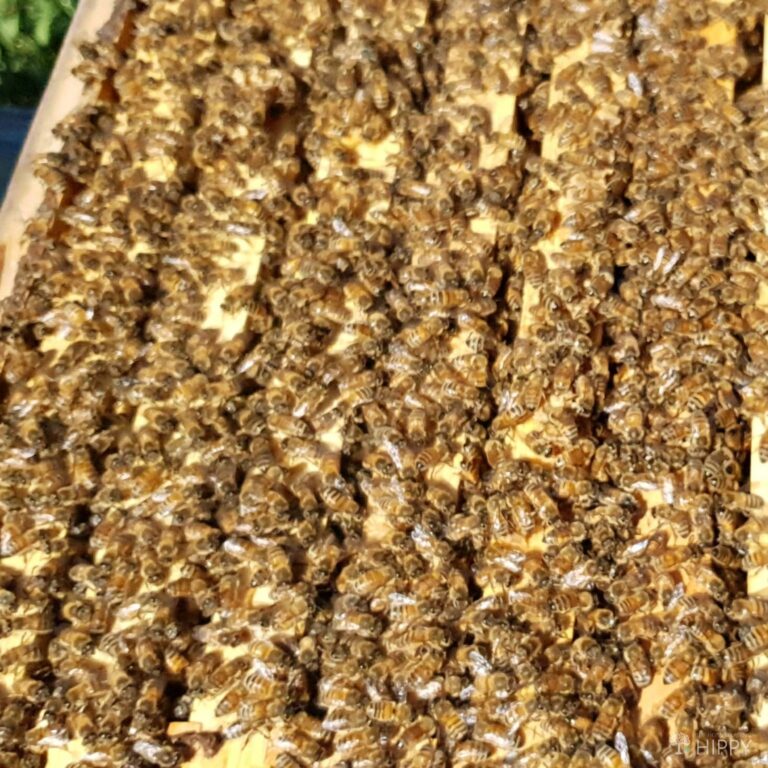
Being Afraid to Start
Once you’ve done some research and you have taken a training course, the next step is going to be starting. Starting any new endeavor can be very daunting for many people. It involves taking the plunge into the unknown.
Keeping a hive does not have to be a very expensive project. You can build your own hives and trap swarms to keep your costs down.
With the right knowledge and the guidance of a good mentor you really do not have to worry too much about whether you are doing things correctly or incorrectly.
One of the best things about beekeeping is that it is easy to correct mistakes – if you are paying attention.
So do not be afraid to jump right in, you will very quickly begin to reap the tasty harvest of your efforts, bringing good, healthy, honey to your table and ensuring a good harvest in your fruit and vegetable crops and flowers as the bees work their magic to bring balance and health back to your homestead.
Starting with Only One Hive
Everyone I have talked to, when asked, said the biggest mistake they made when setting out was that they started with just one hive. For homesteaders, most got bees for two reasons:
- Honey
- Crop pollination
There is nothing wrong with having just one hive, but you will want two to ensure you are not taking too much honey from the bees by straining one colony in production.
If you want to sell honey, you will need multiple hives.
Ready to bee on the way to market
Not Doing Sufficient Setup Planning
Plan where your hives are going to be before you introduce bees. You need to ensure:
- Hives are spread at least two feet apart to avoid fighting, further if you are adding a new hive.
- Hives are not anywhere near buildings – bees can make themselves very comfortable indoors and will not want to move back out where the air is colder. The hives need to be far enough that they can easily gain the altitude needed to fly in any direction. If you have hives, you will have the occasional rouge scout popping in for some sugar, don’t encourage him, just send him on his way. There is no exact distance away from buildings, but the further away the hives are the less chance you will come home to a house full of bees.
- Do not have hives shipped – the bees do not get sufficient airflow and they overheat and you will open a box that contains only dead bees. Rather drive out to a supplier (local if possible) and collect your bees yourself.
- Do not paint hives and immediately move in a colony – just as you would do before moving straight back into your bedroom after painting, you need to let the paint dry properly and you need to let the fumes disperse; and only ever paint the outside of the hive, bees recognize colors and symbols (even numbers) so painting the hive can be helpful to your bees
- Make sure you have enough space in the hive when you set up – start with three frames in the furthest part of the hive, away from the entrance. As you add frames move the existing frames forward just enough to add the extra frame. A clear sign that the hive is overcrowded is that the cells are all completely full of honey, the bees are all hanging out at or outside the hive and acting agitated. Set up a new hive and split the hive when this occurs
- Do not laugh at this one – I live in South Africa, so I did laugh when my one American friend told me this. Is the site where you are putting the hive bear-proofed? If you live in an area where bears are a problem, you will need to enclose the hives with electric fencing.
Feeding Mistakes
There is so much misinformation on the internet regarding feeding bees. Feeding bees during the cold months when there is not enough nectar is necessary.
During summer, the only reason to feed a bee sugar water is when you see it struggling for life in the sun on a sidewalk.
Sugar water has no nutritional benefit for bees. It is a quick pick me up to give them energy.
Bees should only be fed for one of these three reasons:
- They are new bees that still need to make honey for themselves to eat.
- There is a shortage of pollen.
- It is too cold for the bees to go find their own food.
Bees can survive on what they find at 50 degrees Fahrenheit (10 Celsius). Below that, they will probably need some help.
You can feed your bees inside the hive or close to the hive using an entrance feeder, a top feeder, a bucket feeder, a baggie feeder, a frame feeder, an open feeder, or a candy board.
Be careful of community feeding (called robbing) when feeding close to the hive. Bees are very territorial and will fight over food.
So, what should you feed your bees?
- The best thing you can feed your bees is some of their own honey. Through the year, when you harvest, always set aside a little that is clearly marked as having come from that exact hive to feed back to them in the cold months. It is essential that you do not feed them store bought honey or honey from another hive as this may contain diseases that are easily spread.
- Over ripe fruit that has been halved, exposing the juicy contents is the next best thing because it is what they would normally go to in good weather.
- Fresh flowers – cut from your yard, your greenhouse, or store bought.
- Pollen patties – in moderation
- Fondant
- In case of an absolute emergency – and only short term – sugar water/syrup made with sugar and water or granulated white sugar.
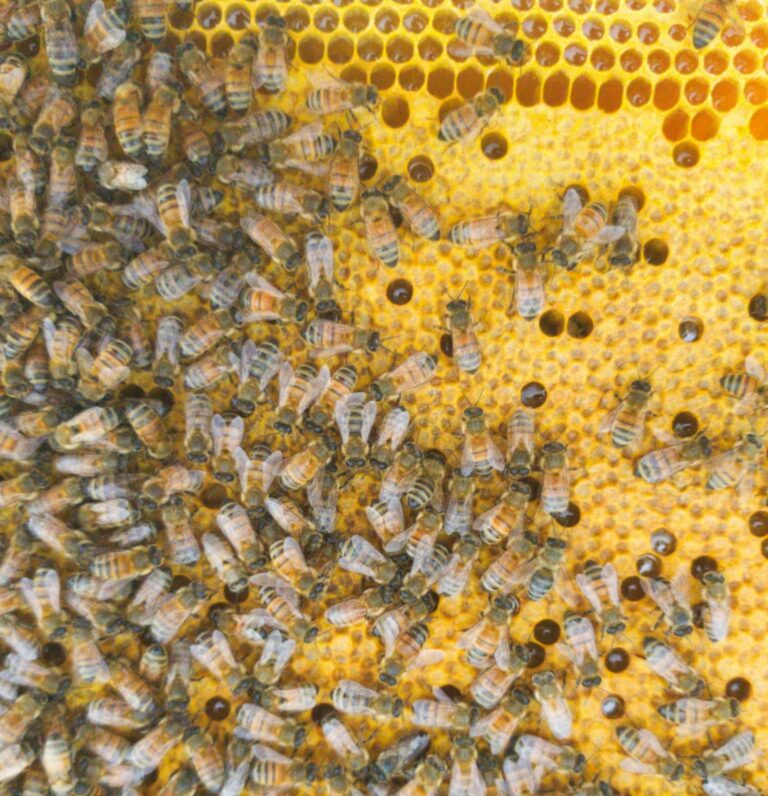
Not Monitoring the Hives’ Health
Monitoring the health of your colony is essential. You should be checking the hives regularly and documenting all your findings each time you inspect.
You should not inspect the hives too often as this disturbs the bees, but you should also not inspect the hives too infrequently as you may miss something that could result in the death of the hive.
When you get a new hive, you should inspect it once a week until it is full of frames. After that, inspecting the colony once a month should be fine. Avoid inspecting when the weather is too cold or when it is raining or snowing – bees are very sensitive to cold.
There are specific things you should be looking for in your hives:
- Is the hive overcrowded – if it is you may need to split the hive?
- Is the queen bee alive and healthy?
- Checking and treating for mites, ants, and other crawling insects
- Is the entrance of the hive protected from wind, rain, and snow?
- Is the hive positioned right (level) so that the frames are well balanced?
- Is it wet inside the hive?
- Is there anything happening near the hive that is upsetting the colony – construction, vibration, noise?
- In winter you may want to combine two hives to help the bees keep warm
- Should you cut or separate queen cells?
- Is the queen laying eggs?
- Do the bees look healthy?
- Check for dead bees, this could indicate disease
Spending Too Much Money
Beekeepers tend to see either money or honey when they set out to get their first colony. Well, if you want money or honey or you want honey without spending too much money, your first priority should always be the bees.
You will want strong, healthy bees that will do well in your area. You can easily build your own hives, and you really do not need to buy bees unless you are in a house in a town.
You can easily build your own trapping hives and trap local swarms. Aside from the financial benefit, trapping a local swarm also means you will have bees that are used to the climate and environment that you are in. All bees want is a roof over their heads and access to pollen or nectar.
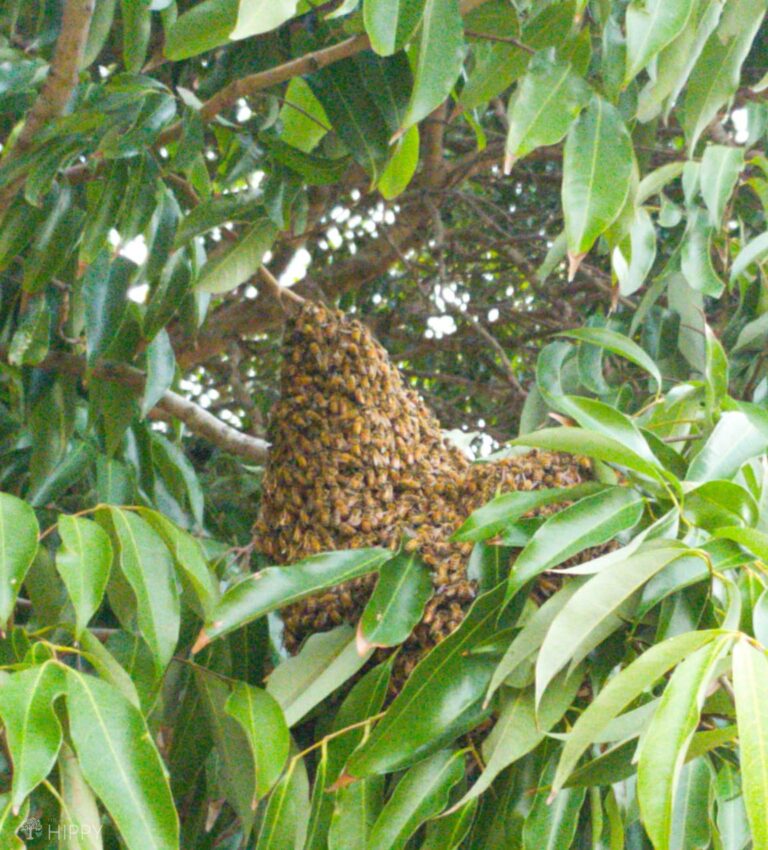
Not Dressing Appropriately
Oh gosh! Use protective gear – always! I had a friend several years ago who was not allergic to bees, she was outside tending her yard one day when a swarm attacked her. She passed away within hours.
Warms happen and they are dangerous! If you work with bees, wear beekeeping protective gear.
There are other factors regarding how you present yourself to your bees. Bees are known to not like certain colors. If you are going near your hives, do not wear clothes that are dark (black, brown, hunters green, navy blue, etc.) and do not wear red.
If you want to know why, go ask a bee, I am not knowledgeable on bees’ taste in clothing, I only know that these colors get them worked up.
Do not wear perfume, cologne, or strong deodorant around the bees. Bees are hunter gatherers; they may be drawn to the smell or they may despise it and attack. Neither of which is a desirable option when you are just trying to walk from your hive to your home.
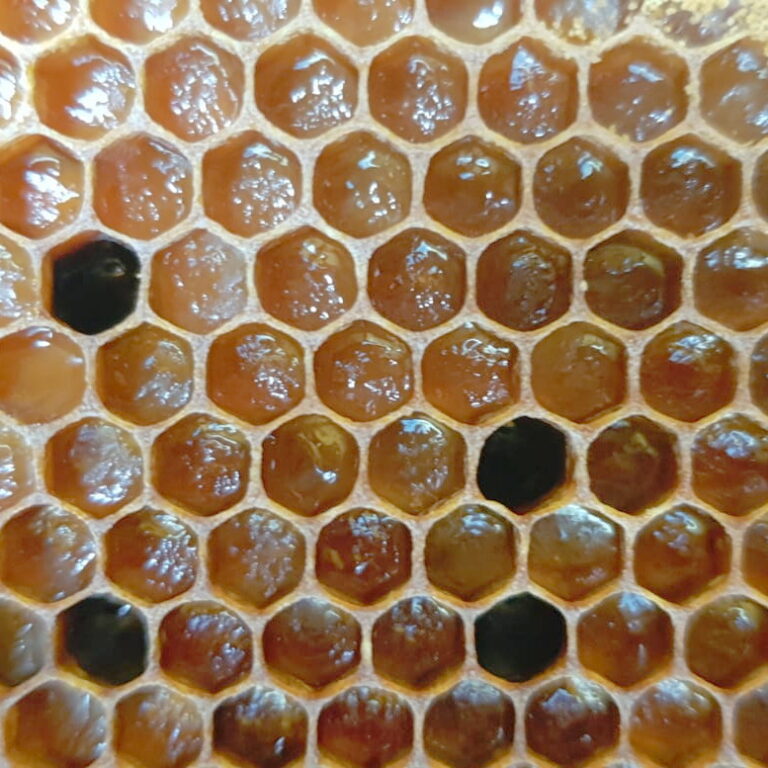
Not Thinking Things Through
Comedian, Bill Engval, does a joke that he carries through most of his acts called “Here’s Your Sign”.
Basically it is reserved for really dumb things people say or do that just leave you shaking your head, for example while taking your dog for a walk and someone stops you to pet it asking “Is that a dog?”, well, “Here’s your sign!”
Beekeepers and looney visitors can do some really sill things. Here are some things that people do that are worthy of a sign or two:
- Not Using A Smoker – the usefulness of a smoker cannot be understated. Using a smoker confuses the bees into thinking that there is a fire nearby. The bees quickly eat as much honey as possible, just in case they have to evacuate in a hurry. It also blocks the communication signals they use to tell each other that they are under attack and need to swarm and attack the villain – YOU! Remember that once a bee stings it dies, so even if you are wearing your protective suit, you still need to smoke the bees to protect against loss of lives
- Working In the Dark – moving hives in the dark is never a good idea, you could trip and drop the box and the only thing on the minds of all your bees is going to be “We are under attack!”
- Moving Hives At the Wrong Time – do not move hives in winter, plan ahead and move them while the weather is still fair
- Starting With ‘Fresh’ Ideas Rather Than Tried and Tested Methodologies – as a newcomer, you do not know more about beekeeping than all the experts out there. Set up your hive or hives and when they are up and running and well established, then you can try new ideas
- Cell Phones Are A Bad Idea Around A Hive – bees communicate through vibration. If you really want to see chaos, come under attack, and have the survivors move out in a hurry, set your vibrating cell phone anywhere near the hive; cell phones and the next item on the list are unfortunately often linked
- Working with Bees While Under the Influence (Prescribed or Otherwise) – drunk people and bees do not go well together. The number of times I have heard about people getting drunk and challenging each other to pull down their pants and sit on the hive is bizarre! Worse still are the people under the influence who decide to put the cell phone inside the hive then have some bare-bottomed knucklehead sit on the hive and then dial the cell number so the phone rings and vibrates inside the hive. This is a quick way to the ER or even the morgue, it should never be done
- Harvesting Honey Too Early or Taking Too Much – Your bees need time to establish their home and they also need to eat. Do not be in a rush and start taking honey from the hive within the first year, and always leave them with enough to eat – especially in winter
Gorging on honey
- Working with A Hive Alone – beekeeping is not a one-man job. For one thing hives are heavy, if you do not have someone to help open a hive up you could drop the hive or even just bump it hard enough to cause a swarm. If you are alone when bees swarm, you may not get the help you need in time to save your life
- Not Understanding Colony Communication – if you go to check on your hive and they are acting aggressively, walk away and come back when they are calmer. When you do check them, make sure you can see the queen and that she is healthy and that she is laying eggs, and make sure there are no mites, ants or other bugs in the hive
Not Getting Community Buy-In
It is so important to communicate with all your neighbors if you are planning on getting a hive.
Most will love the idea because their flowers will be pollinated, they will get better crops, and maybe they can squeeze a little extra honey out of you now and then. But there will be issues that are better addressed sooner than later.
Local homesteaders do not tend to use pesticides often, but farmers do. And pesticides kill bees.
Discussing when farmers are spraying pesticides can help you plan so that you can provide food closer to home so the bees do not head for the crops.
You also may find out that your neighbors’ child is allergic to bees. This is something that would make me stop dead in my tracks and rethink my plan.
You could avoid catastrophic loss of life by relocating your hives in a far corner well away from the allergic neighbor. Or you may even place it on a different property. In Australia, many organic farmers welcome hives not even charging rent because bees mean pollination.
It is better to work things out well in advance.
Not Being Prepared for Equipment Malfunctions
Hives take a lot of strain. Honey is heavy and can cause a hive to collapse. You can prepare for simple issues like a wet hive or a hive collapsing by simply having a new hive close by. Your bees will look for the closest place they can to settle down in their old stomping ground.
If you see the hive is about to collapse, move the new hive right next door to the old one and transfer the frames of honey, the bees will follow their food.
You will also need that spare hive for splitting colonies. I like to transfer a queen cell when I split a hive for the sake of continuity.
Space your hives well and mark them with clear signs like X or O in different colors. Bees can identify their own hives by markings. You do not want them going home to the wrong home.
Consider your own physical strength before buying or making your own hives. Many people automatically buy or make vertical hives which are very heavy and hard to handle if you are a lightweight or if you are disabled. If you are disabled, try using a horizontal hive. They are easy to handle, even if you are in a wheelchair.
Have empty frames or supers available for adding to or replacing in hives as needed.
Always ensure that the bees can get in and out of the hive safe from the weather and from predators.
Winter Mistakes
There are a few basic mistakes new beekeepers make during winter.
The worker bees are preparing the hives winter supplies
Firstly, they feed incorrectly.
Do not overfeed your bees pollen, as it is high in protein to baby bees. In winter you do not want your bees using all their energy trying to produce enough honey for their own survival and raising babies.
Do not feed sugar water or sugar syrup. It has no nutritional value and once the temperature hits 50 degrees Fahrenheit (10 Celsius) honeybees will not eat it.
Secondly, beginners are a little too quick to open the hive for inspections in the cold. Every time you open the hive all the heat escapes and the bees die from the cold. If it is below 50 degrees Fahrenheit, do not open your hive.
Thirdly, new beekeepers try to bundle up by wrapping the hive too tightly. In subzero temperatures, wrapping is definitely needed, but always leave a gap between the wrapping and the hive to allow air to flow freely. You do not want to trap moisture in as this will grow mold.
Fourth and finally, do not cover the entrance to the hive. This is a rookie mistake made by many. If you block the hive the bees can’t get out. Even in winter the bees will occasionally venture out on a warmer day. They should have access to get in and out.
So Many Mistakes…
We all need advice, but you wouldn’t ask a plumber why you can’t pee. Make sure the people you are turning to for guidance know what they are talking about. If you are given advice that sounds off, ask someone else or – if all else fails – ask the internet.
There is a difference between someone who has loads of bees on their farm and a beekeeper. Make sure your advice comes from a serious beekeeper.
Time to enjoy some tea and toast
I hope this article will be helpful in setting you up to bee a beekeeper. Let us know about some of the funniest bee stories you have heard or been part of in the comments below. Bee good!
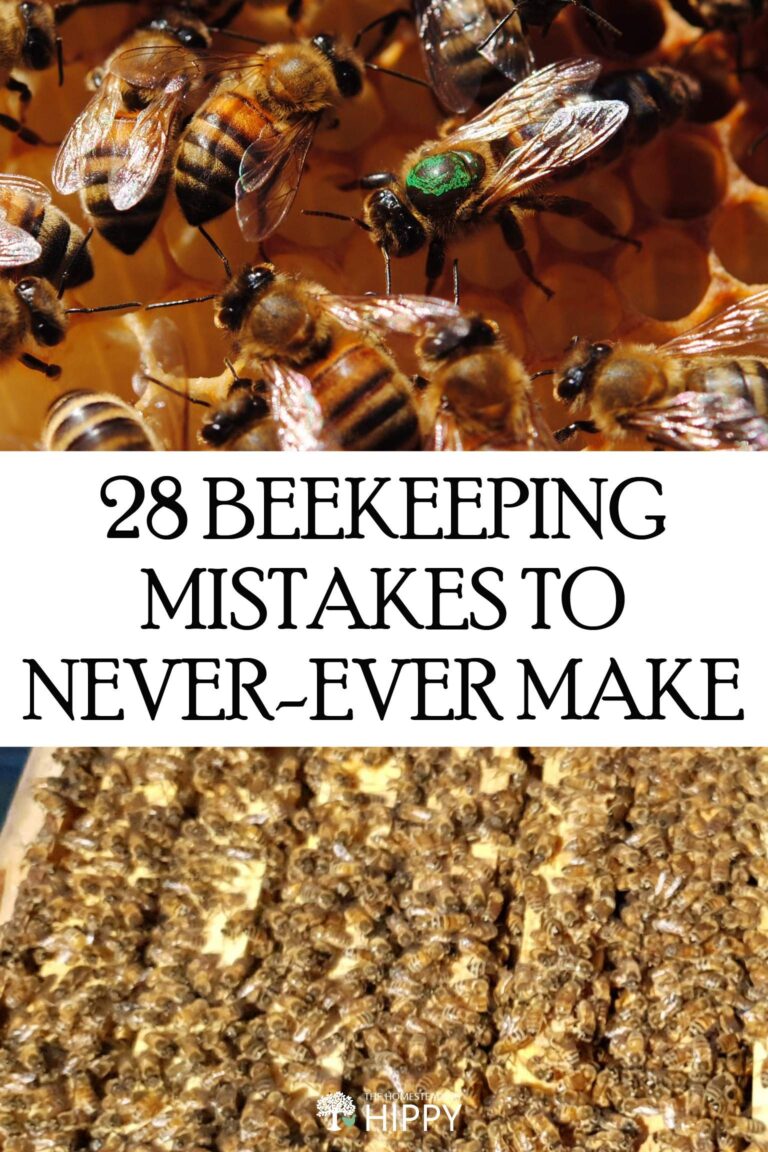
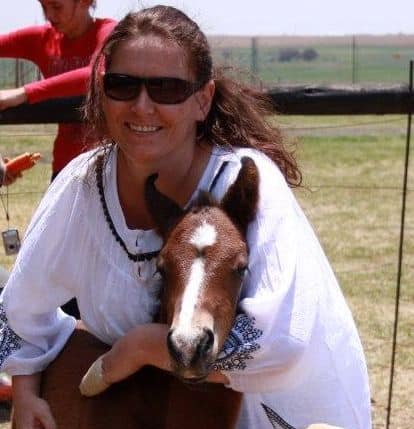
Di-Anne Devenish Seebregts was raised in an environment where daily life consisted of hiking, environmental conservation, growing fruit and vegetables, and raising poultry for meat and eggs.
She combined her passion for the writing word with her love of the pride that comes with not relying on others. She raised three children (who are now adults) to value the environment, and understand the value of being self-sufficient.
Find out more about Di-Anne on our About Us page.

Interesting post from a different part of the world!! I’ve been a beekeeper since I was 11 years old! (68 now!). My advice….never stop learning about bees! I know I haven’t! And one last thing….Thanks for being a Beekeeper! Rick
Thanks Rick. 100% keep learning. That’s a lesson my dad passed to me and I have pummeled into my kids. Conservation is critical and everyone needs to bee ? educated to prevent and restore our planet.